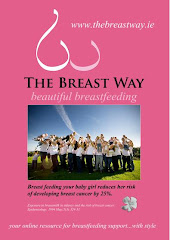Ok, here goes again. Health continued.....
There is a very small risk of Cervical Spine Instability in children with down syndrome. This occurs at the top of the neck and affects the two small bones in the spine that allow nodding (like yes/ no). It is very important not to ignore the signs and to seek specialist attention. Apparently it is very curable with a very small operation. Look out for:
- pain at a spot near the hard bump behind the ear
- A stiff neck which doesn't get better quickly
- Alteration in the way a child walks or he/ she looks less good on their feet
- Deterioration in a child's ability to manipulate things with their hands
- Incontinence developing in a child who has previously had no problem
As we all know, there can be (well lets face it, it's very likely) Speech and Language Problems in children with down's syndrome. Receptive language skills are increased, expressive language skills are decreassed and grammer can be more difficult. No speech and language problem is unique to children with down's syndrome and it can be linked to hearing impairment like otitis media with effusion (???) and fliud in the middle ear without signs/ symptoms of ear infections. The trick here is to start therapy the moment your child is born (which all parents do anyway). Feeding, family talk, touching, looking, listening, encouragement are all important speech therapy you can do at home, and formal S&L is also important.
CONSTIPATION!!!! I have some lovely pictures and diagrams in my notes, but you will all be sad to know, that they are a bit too small to scan in and post here (and I am far too lazy to dig the scanner out and plug it into the computer), so I'll save you the details. Lets just say that normal poo for a child should be smooth, soft and snake/ sausage shaped. If it's hard and lumpy (or worse)......CONSTIPATION. If it's little soft blobs (or worse again) with clear liquid ....DIARRHEA. If it's a baby (Cathal), in my experiance, anything goes. Anyway, for constipation, introduce more fibre (fruits, prunes, cereals), increase water or juice, take more exercise, cut down on high-fat and high sugar foods, encourage regular bowel movements and go to the GP if the poo is softer (could be hypothyroidism). Also, another tip that Joan had was if your child seems to be straining, hold your child against you, their back to your tummy, bring their knees up to their chest and give a big hug! Aparently this gets things moving.
Sleep, the holy grail. Sleep all depends on age, if the child is well/ unwell, hot/ cold, hungry/ thirsty, teething, learnt behaviour. If sleep problems continue, write a record (when did it start/ happen, time it takes to go to sleep, time the child actually sleeps and what position the child sleeps in the bed/ cot) Chat to your GP, or Joan.....she seems to have all the answers and asks all the right questions.
Understanding Behaviour, it all has a purpose. Either to get atention, start social contact, escape/avoid, obtain objects/ events, express emotion or reduce stress, sensory stimulation. Again, it's the same advise as sleep, take a note of the behaoviour, when, where, why and listen to your gut instinct.
Dental Health, but sure that's all the usual stuff!! No need to explain.
Independance can start from 1 year old. For example, when out and about, sit the child in the trolley and have them get the cornflakes. Have a list of shopping with pictures to illustrate what is needed. This can give children pride in the ability to put items into the trolley. So while doing the shopping, you are practicing and teaching coordination, S&L, physio and OT. Be inclusive from an early age, get involved in the community, local events, drama, football, swimming.
And finally, you, the parent. It's important to take care of yourself, take time for you. We are all running around from one appointment to another, and just sitting down to relax and to be relaxed around your child is the best thing. The hoovering can get done tomorrow, the washing can wait another few hours. When playing with your child, just play with them, drop the down's syndrome for one day each week and do what you want.
"It's in the the atmosphere of love and acceptance that the best growth occurs"
Joan Murphy
Clinical/ Research Nurse Specialist
Department of Paediatrics/ TCD
Phone: 01 8963785/ 4142000/ bleep 7193





4 comments:
Personal health depends partially on the social structure of one’s life. The maintenance of strong social relationships is linked to good health conditions, longevity, productivity, and a positive attitude. This is due to the fact that positive social interaction as viewed by the participant increases many chemical levels in the brain which are linked to personality and intelligence traits.
-------------------------
hesslei...........
promoter
I was at the same talk given by Joan, but for the Louth/Meath branch of DSI a few weeks before you. I must say I too found it so interesting, Joan seems to have answers for everything. And she demonstrates so much passion for what she does!
As a matter of interest, I never heard so many ways of discribing "poo"! Quite enlightening.
Well done, Cathal's Mammy, between your two posts you have recapped beautifully on every thing I heard, and more!
Useful stuff. Thanks again C's mam.
Excellent post there Cathals mam.. very informative for all parents...am with u on the poor eyesight thing...its the one definite gene I passed onto all my kids - except Babs..am virtually applauding you for this post...well done..
Post a Comment